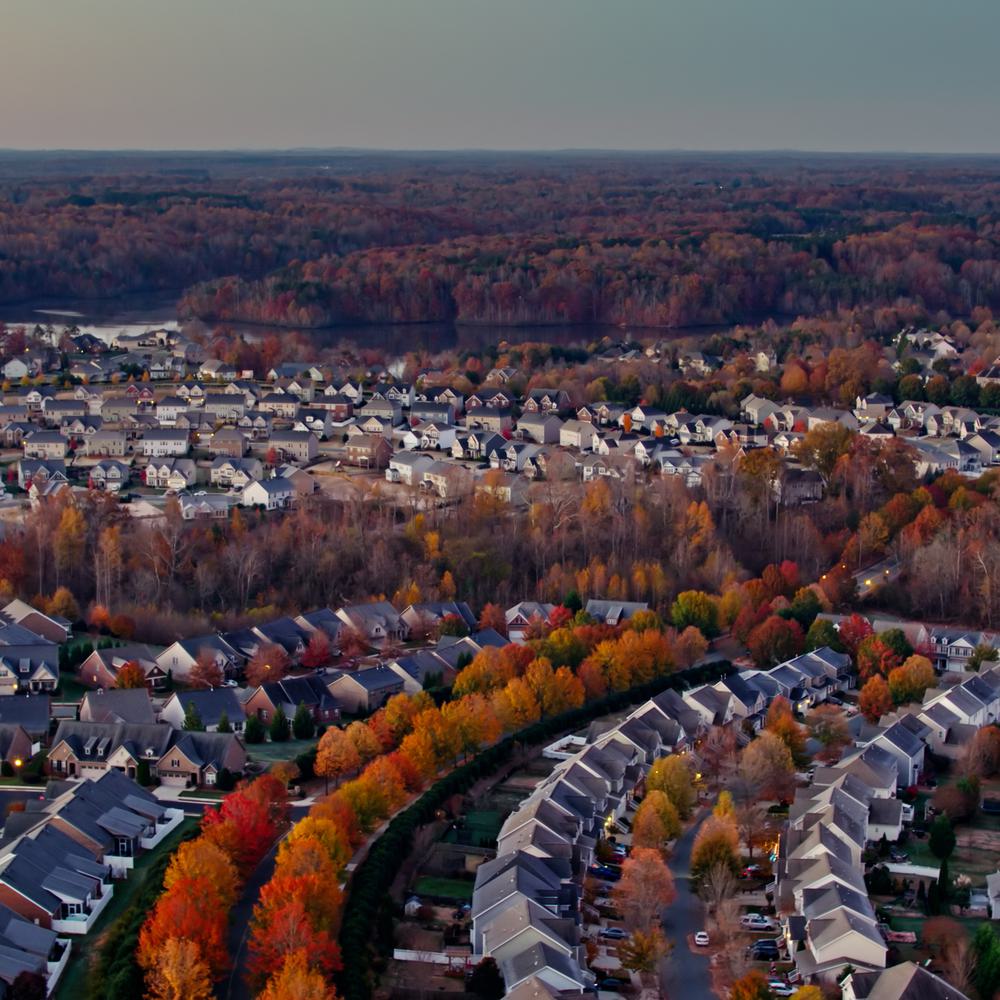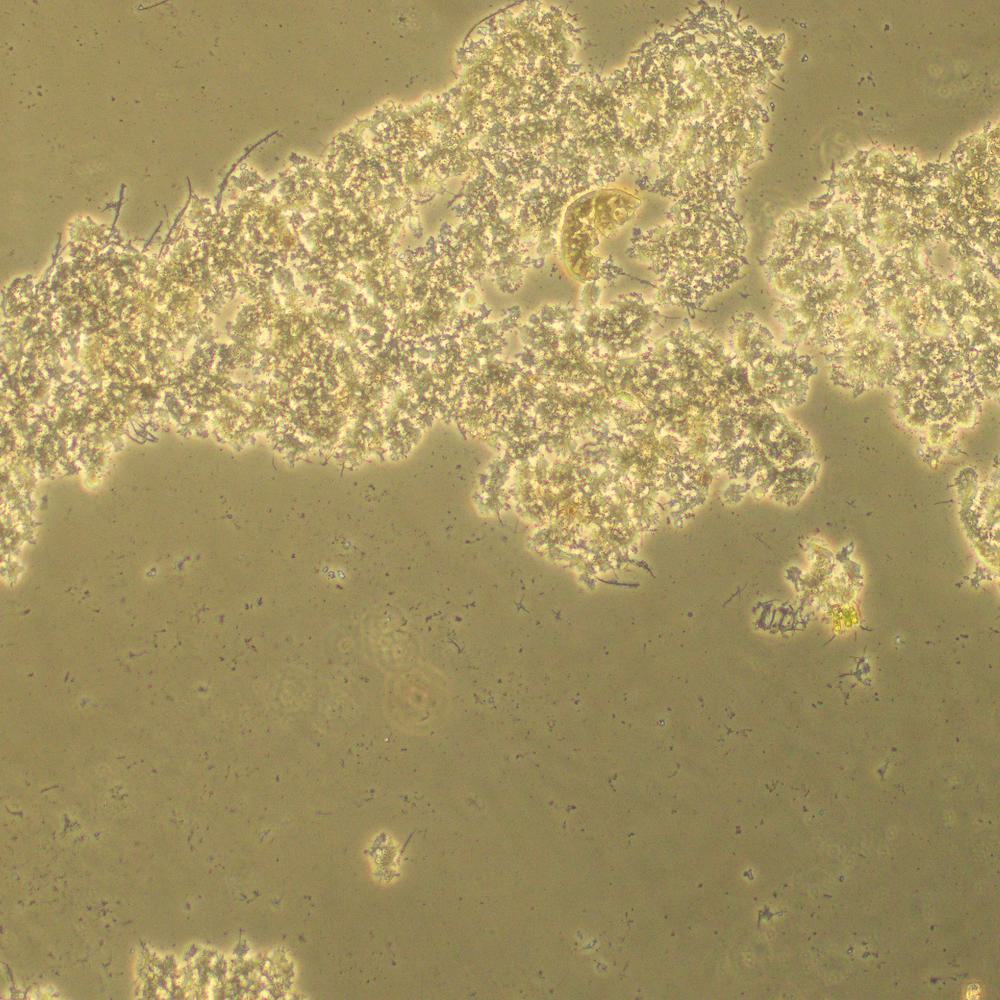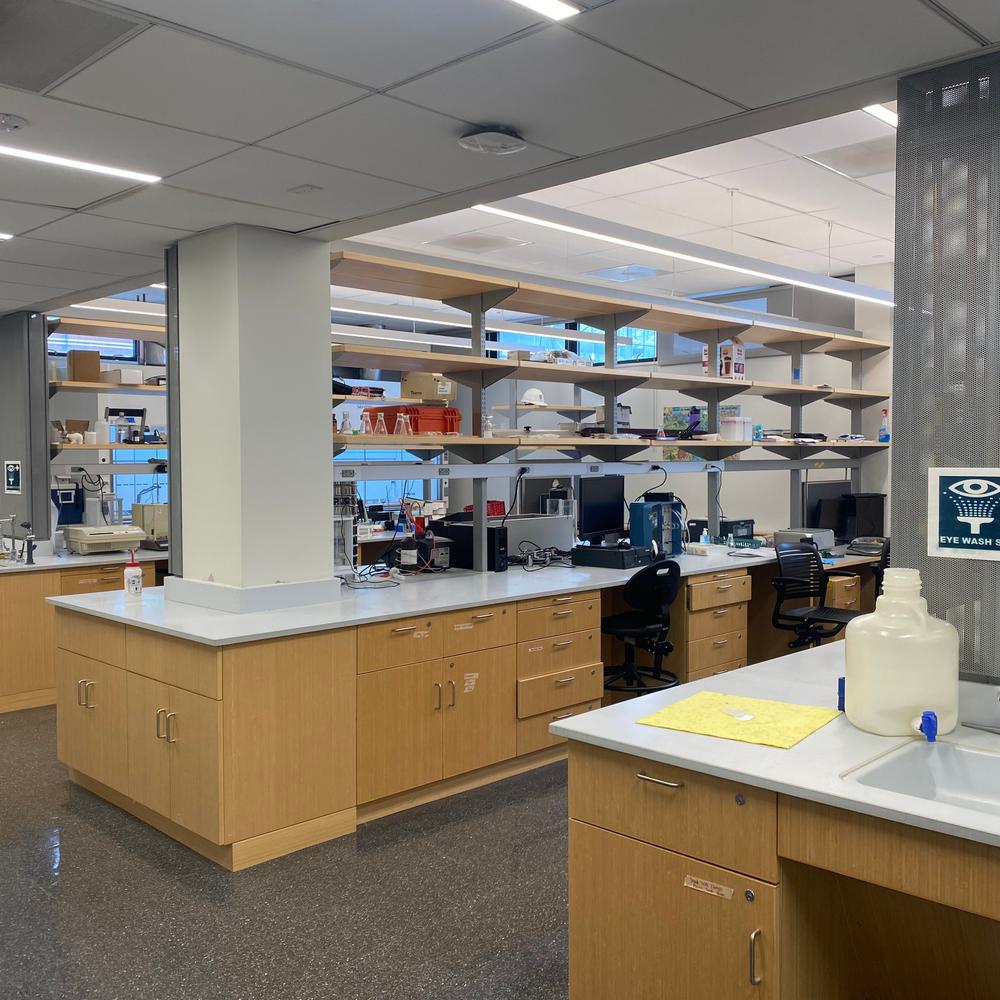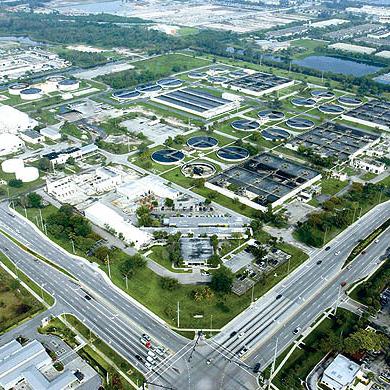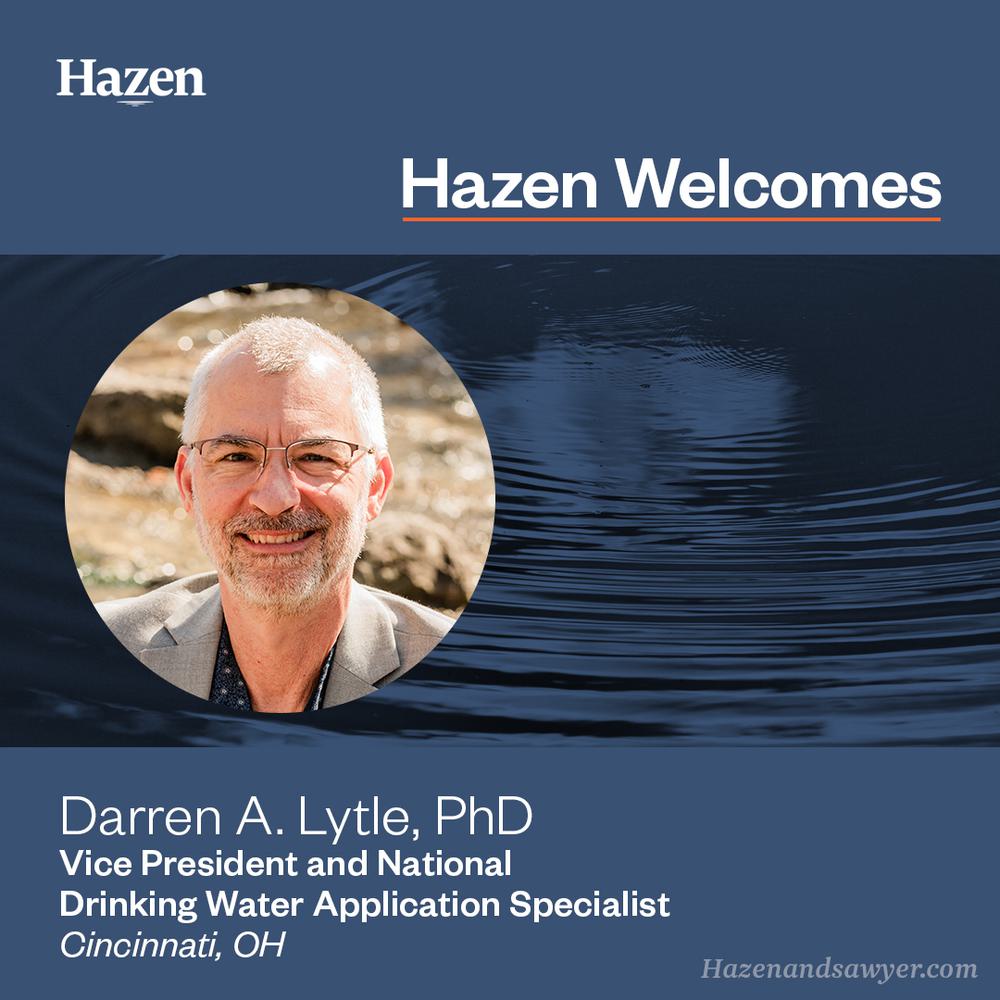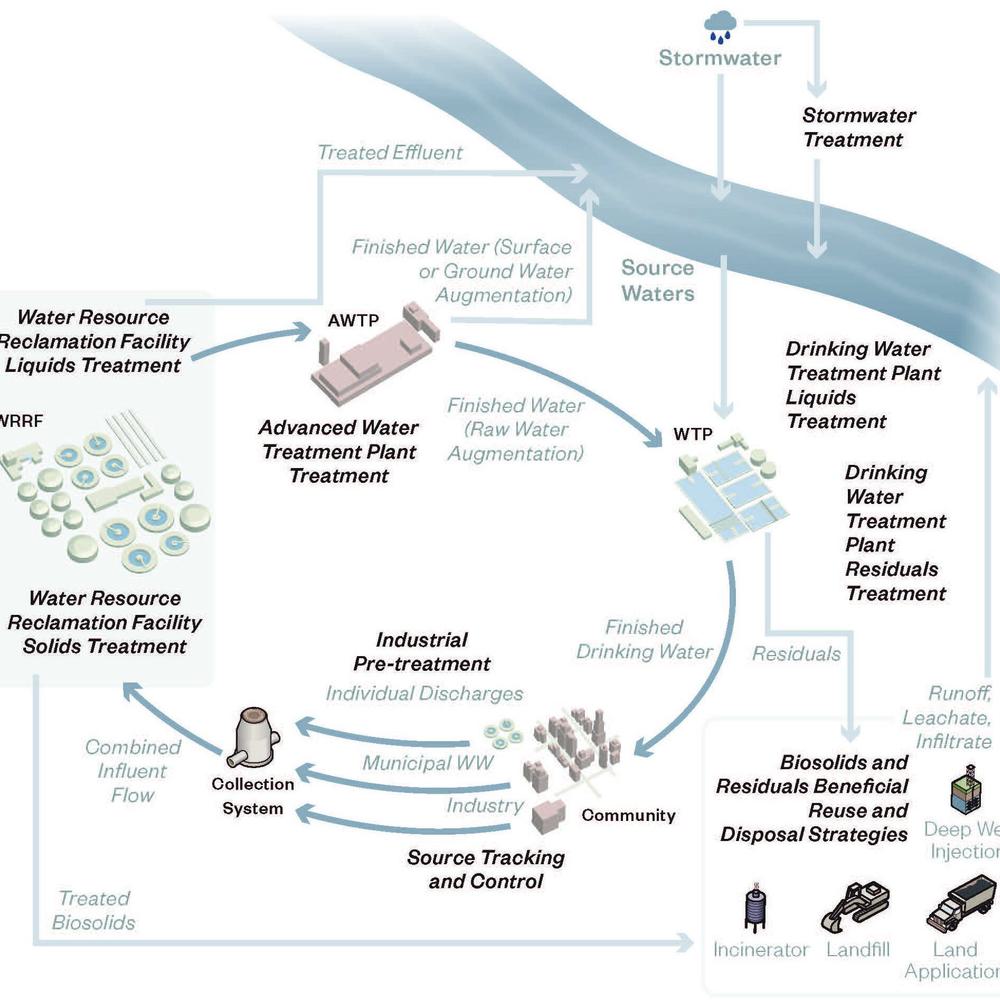Hazen Awarded Water Research Foundation Grant to Evaluate Leading-Edge Biosolids Treatment Options
(PHILADELPHIA, PA - April 13, 2023 / Updated: August 19, 2024) - A team featuring Hazen’s Micah Blate as principal investigator (PI) and Mohammad Abu-Orf as a co-PI was recently selected to lead Water Research Foundation (WRF) project #5169: “Evaluating Innovative and Sustainable Treatment Options for Biosolids.”
With biosolids management becoming increasingly difficult due to external factors such as emerging contaminants (PFAS, microplastics, pharmaceuticals, etc.), rising costs, greenhouse gas emissions, and pressure from end users, this project will develop guidance to help utilities navigate these unprecedented times. The project team will evaluate innovative treatment technologies to identify pathways for the sustainable management of biosolids, carefully considering potential end products, market conditions, and market maturity.

The project team will compile a comprehensive list of innovative biosolids processing technologies, classified based on level of readiness, enabling utilities to identify knowledge gaps and streamline adoption of their chosen technology.
The project team will review and collect data on technologies ranging from leading-edge laboratory-scale to full-scale systems. The collected data and information will be consolidated into a dashboard where users can select and visualize information specific to their particular situation. The project team will also host workshops with the Project Advisory Committee (PAC), partnering utilities, technology providers, and experts to engage the community and incorporate their input in developing the decision support tool. The technology database dashboard and decision support tool will be made available to the public once finalized.
“As the biosolids community begins planning for a future of unprecedented challenges such as PFAS, this project will provide WRF-subscribing utilities easy-to-use tools for quantifying the risks and rewards of developing innovative biosolids technologies while weighing competing demands.”
~ Dr. Mo Abu-Orf, Hazen’s Biosolids Practice Leader
Upon completion, the project will provide valuable information to utilities, including descriptions of technologies and status, beneficial use of products, performance metrics, and costs. A comprehensive list of innovative biosolids processing technologies—classified based on technology maturity and identifying data gaps in available information—will enable utilities to streamline decision making and allow faster adaptation of technologies.
The project team includes leading beneficial residuals management firm SYLVIS serving as a subconsultant and will be supported by several technical experts, including Dr. Matt Higgins, a professor at Bucknell University. The project kicked off on Friday, April 14th, 2023, and is expected to be completed in 2025.

2024 Update
Since the project’s launch, the team has created a Power BI dashboard that covers 36 innovative biosolids treatment technologies such as supercritical water oxidation (SCWO), pyrolysis and gasification, and hydrothermal liquefaction.
The dashboard covers key details about each system, from the specific processes it involves to its market readiness and ability to reduce greenhouse gas emissions. Users will be able to sort and compare those data points in different ways, as well view fact sheets that provide more detailed information for each technology. The team will add more information to the dashboard as it completes the project.

A screenshot from the forthcoming Power BI dashboard, which will be available to WRF members. The figures shown are preliminary until the final report is published. (Blate et al. Forthcoming. Reprinted with permission. © The Water Research Foundation.)
SYLVIS, the firm Hazen is partnering with for the project, also evaluated the management costs and market values of the different end products of these innovative treatment techniques. The preliminary results showed that those products have more potential beneficial uses than conventional biosolids products—which means more potential ways recover some of the treatment costs (see graph below).

Compared to dewatered biosolids (Class A DW in the above graph), a traditional end product, the preliminary results found that end products from innovative biosolids treatment technologies tended to have lower management costs—and even, in some cases, significant cost recovery opportunities. (Blate et al. Forthcoming. Reprinted with permission. © The Water Research Foundation.)
The project is also evaluating the innovative biosolids treatment technologies’ ability to remove contaminants of emerging concern (CECs) such as per- and polyfluoroalkyl substances (PFAS).
What’s Next
The team has shortlisted five of the innovative biosolids technologies for further investigation and is now putting together case studies for each one. WRF also just awarded the project $40,000 more in funding, and Hazen is providing an additional $19,000 in in-kind funds, to analyze the life cycle of these new technologies—including their environmental impacts—compared to conventional biosolids management options.
Once the case studies and report are complete, the team will use those resources along with the finalized dashboard, fact sheet, and end products evaluation to build a robust decision-making tool for utilities considering innovative biosolids treatment technologies.
Reference: Blate, M., A. Sun, A. Lewis, P. Knowles, and M. Abu-Orf. Forthcoming. Evaluating Innovative and Sustainable Treatment Options for Biosolids. Project 5169. Denver, CO: The Water Research Foundation.




